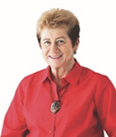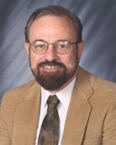
|
INVITED SPEAKERS
Invited Addresses
Lifetime Achievement Address
Imagine Being Accused of Scientific Fraud! Linda Carter Sobell, Ph.D., ABPP, Nova Southeastern University Mark B. Sobell, Ph.D., ABPP, Nova Southeastern University
Dr. Sobell is past president of the Society of Clinical Psychology of the APA, and she was the second female president of the Association for Behavioral and Cognitive and Therapies (ABCT). For over four decades she has been the recipient of grants from several federal agencies. In recognition of her research accomplishments, she has received several awards, including the Betty Ford Award; Norman E. Zinberg Memorial Lecture Award, Cambridge Hospital and Harvard Medical School Award; Jellinek Memorial Award for outstanding contributions to knowledge in the field of alcohol studies; Charles C. Shepard Science Award for the most outstanding peer-reviewed research paper on prevention and control published by Centers for Disease Control/ATSDR scientists; Distinguished Scientific Contributions to Clinical Psychology Award from the Society of Clinical Psychology of the APA; Lifetime Achievement Award, ABCT, Addictive Behaviors Special Interest Group; and Distinguished Scientific Contributions to the Application of Psychology Award, Division 50 (Society of Addiction Psychology), APA.
Dr. Sobell is past president of the Society of Clinical Psychology of the APA. He is also on the APA Publications and Communications Board and currently is the Chair of that Board. For over four decades he has been the recipient of grants from several federal agencies. In recognition of his research accomplishments, he has received several awards, including the Distinguished Scientific Contribution Award from Society of Clinical Psychology, APA; the 2008 Charles C. Shepard Science Award (most outstanding peer-reviewed research paper on prevention and control published by Centers for Disease Control/ATSDR scientists 2007); Lifetime Achievement Award from the Addictions Special Interest Group, Association for Behavioral and Cognitive and Therapies; Jellinek Memorial Award for outstanding contributions to knowledge in the field of alcohol studies; Distinguished Scientific Contributions to the Application of Psychology Award, Division 50 (Society of Addiction Psychology), APA; and Brady/Schuster Award for Outstanding Behavioral Science Research in Psychopharmacology and Substance Abuse, Division 28, APA. Participants Earn 1 Continuing Education Credit Primary Category: Addictive Behaviors, Treatment - CBT, Dissemination & Implementation Science Keywords: Addictive Behaviors, Evidence-Based Practice, Treatment Development Our careers have been characterized by wonderfully serendipitous opportunities; being accused of scientific fraud was not one of them. The study involved a randomized controlled trial we conducted in 1970-1971 with alcohol abusers using a low-risk drinking goal rather than an abstinence goal, and the low-risk drinking goal group had better outcomes over 3 years of follow-up. In 1982 it was alleged that we had committed scientific fraud. The attack received national and international attention, including on 60 Minutes. Fortunately, we had maintained meticulous records from the study for 12 years and were vindicated in four major investigations and a $95 million lawsuit. In retrospect, that experience had an upside. It taught us that science is a social process that can be very rough and tumble, that colleagues with integrity are invaluable, and that investigative news shows are primarily entertainment and are forgotten very quickly. Our careers also had other highlights. Our early research involved conducting experimental intoxication studies with individuals who had serious alcohol problems. We learned much from those studies, because alcohol problems are among the few disorders almost always studied in the absence of symptoms. To evaluate our first controlled trial with low-risk drinking, we developed an assessment instrument now known as the Timeline Followback for collecting retrospective reports of behaviors. Over our careers we focused on the large population of persons who have alcohol problems that are not severe, we did research on natural recovery (also referred to as self-change), and we developed and validated a treatment called Guided Self-Change (GSC) in individual and group formats. The GSC treatment has now been validated in 12 studies and 4 languages. Finally, we were involved in community dissemination of evidence-based practice, preventing alcohol-exposed pregnancies, and we developed and evaluated a computer and smartphone intervention called iSelfChange. At the end of this session, the learner will be able to:
Recommended Readings: Marlatt, G. A. (1983). The controlled-drinking controversy: A commentary. American Psychologist, 38(10), 1097-1110. doi:10.1037/0003-066x.38.10.1097 Sobell, M. B., & Sobell, L. C. (2005). Guided Self-Change treatment for substance abusers. Journal of Cognitive Psychotherapy, 19, 199-210. Sobell, L.C., Sobell, M. B., & Agrawal, S. (2009). Randomized controlled trial of a cognitive-behavioral motivational intervention in a group versus individual format for substance use disorders. Psychology of Addictive Behaviors, 23, 4, 672-683. doi: 10.1037/a00116636. Sobell, L. C., Sobell, M. B., Leo, G. I., Agrawal, S., Johnson-Young, L., & Cunningham, J. A. (2002). Promoting self-change with alcohol abusers: A community-level mail intervention based on natural recovery studies. Alcoholism: Clinical and Experimental Research, 26, 936-948.
|
 Linda Carter Sobell, Ph.D., is President's Distinguished Professor at Nova Southeastern University. She is nationally and internationally known for her research in the addictions field, including the development of the Timeline Followback. She is a Fellow in the American Psychological Association (APA; Divisions 1, 3, 12, 25, 28, 38, 50), a Fellow in the Association for Behavioral and Cognitive Therapies, a Motivational Interviewing Trainer, and is Board Certified in Behavioral and Cognitive Psychology, American Board of Professional Psychology (ABPP). She is currently on the Board of Trustees, ABPP, President-Elect of Division 50 to the APA, and a Member of the Commission for the Recognition of Specialties and Proficiencies in Professional Psychology, APA. She has given over 310 invited presentations/workshops, published over 300 articles and book chapters, serves on 9 peer-reviewed editorial boards, and authored 9 books.
Linda Carter Sobell, Ph.D., is President's Distinguished Professor at Nova Southeastern University. She is nationally and internationally known for her research in the addictions field, including the development of the Timeline Followback. She is a Fellow in the American Psychological Association (APA; Divisions 1, 3, 12, 25, 28, 38, 50), a Fellow in the Association for Behavioral and Cognitive Therapies, a Motivational Interviewing Trainer, and is Board Certified in Behavioral and Cognitive Psychology, American Board of Professional Psychology (ABPP). She is currently on the Board of Trustees, ABPP, President-Elect of Division 50 to the APA, and a Member of the Commission for the Recognition of Specialties and Proficiencies in Professional Psychology, APA. She has given over 310 invited presentations/workshops, published over 300 articles and book chapters, serves on 9 peer-reviewed editorial boards, and authored 9 books.
 Mark B. Sobell, Ph.D., is President's Distinguished Professor at Nova Southeastern University (FL). He is nationally and internationally known for his research in the addictions field. He is a Fellow in the American Psychological Association (APA; Divisions 1, 3, 12, 25, 28, 38, 50), and is Board Certified in Behavioral and Cognitive Psychology, American Board of Professional Psychology. He has given over 200 invited presentations/workshops, published over 270 articles and book chapters, and authored 9 books. He serves on 6 peer-review journal editorial boards, and he is a Council Representative for Division 12 (Society of Clinical Psychology) to the APA.
Mark B. Sobell, Ph.D., is President's Distinguished Professor at Nova Southeastern University (FL). He is nationally and internationally known for his research in the addictions field. He is a Fellow in the American Psychological Association (APA; Divisions 1, 3, 12, 25, 28, 38, 50), and is Board Certified in Behavioral and Cognitive Psychology, American Board of Professional Psychology. He has given over 200 invited presentations/workshops, published over 270 articles and book chapters, and authored 9 books. He serves on 6 peer-review journal editorial boards, and he is a Council Representative for Division 12 (Society of Clinical Psychology) to the APA.